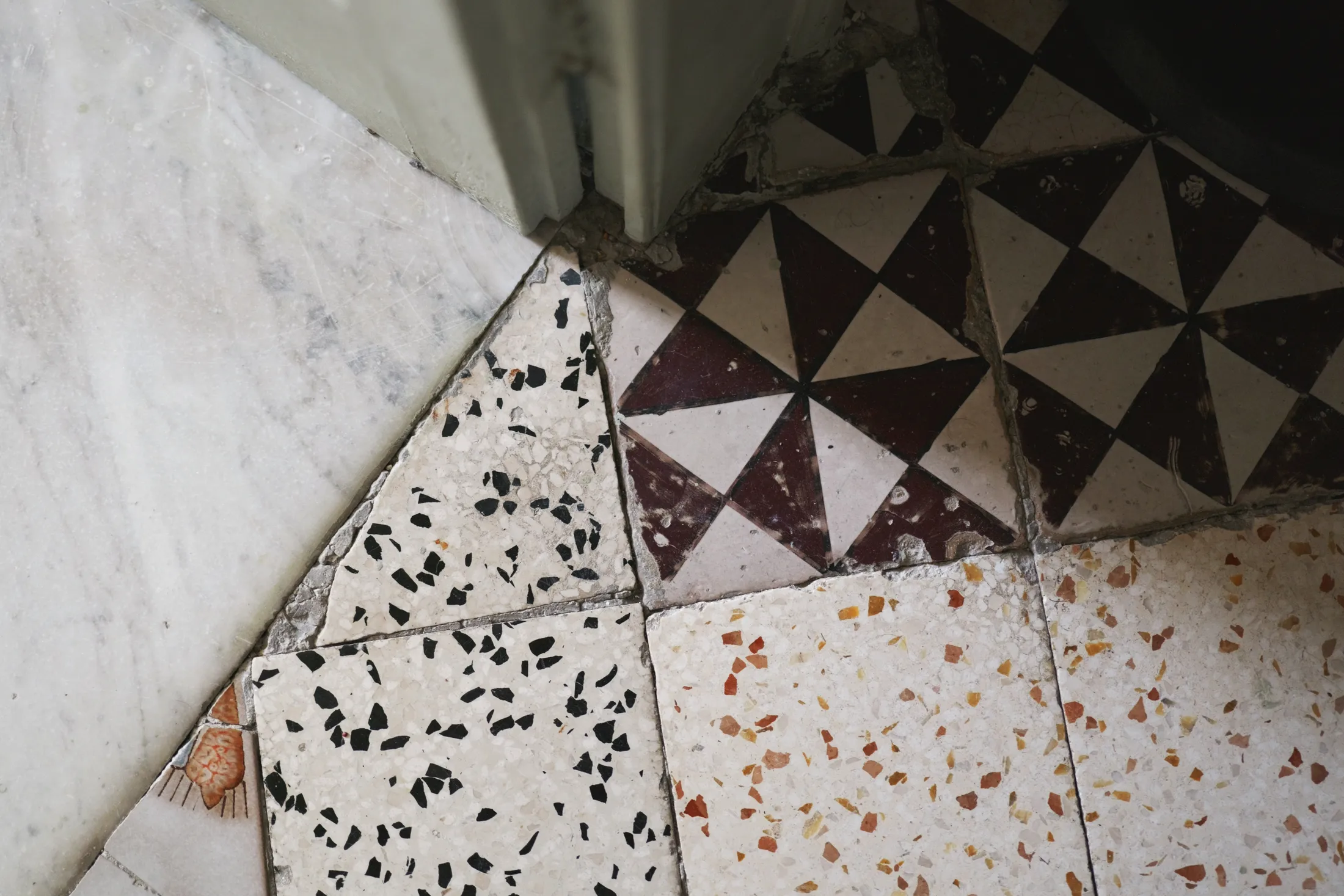Open Menu
Search

In the historic hills of Naples, architects Julie Nebout and Giuseppe Punzo transformed a decaying apartment into a vivid expression of design and experimentation. Rooted in contrast and colour, the home reflects their playful approach.







“From the beginning, we wanted a home where we could experiment, draw and create design objects.”








“It’s not just a house, it’s a way for us to keep testing things, to try different materials or ideas we don’t always get to use in client projects.”







“We don’t have a fixed philosophy. We try to let the space guide us – the light, the proportions, the layers already there.”






“We’re always working with what’s already there. It’s not about transforming everything – it’s about letting the place speak.”



“We love colour,” says French architect Julie Nebout of the playfully curated home in Naples she shares with her partner, Italian architect Giuseppe Punzo. Together, they co-founded La Fotosintesi, an architecture and design studio focusing on context-sensitive renovations and expressive materiality. After years in Paris, they were drawn to Naples – a city of colour and contradictions. Punzo captures what makes the city unique: “If you go to Naples, you’ll see a contrast. There is a lot of beauty and a lot of the city has been abandoned.”
Their home is a vivid expression of that contrast. Rich in colour and texture, it brings new life to an early 1800s building that had stood abandoned for years. “We had a crush,” says Nebout, describing the moment they first saw the abandoned building on a walk through Capodimonte Hill. Their intention with the space was simple. “From the beginning, we wanted a home where we could experiment, draw, and create design objects,” Punzo explains. But the space’s final expression turned out to be far from simple. Balancing a unique trilogy of sophistication, restraint, and a relaxed sense of style, Nebout and Punzo created a home where colour and history thrive.
“We wanted to maintain the original character of the house as much as possible,” the couple says. “But we also needed to make the space work better for how we live.” And that they did, turning the home into an elegant blend of familiar and fresh. They kept the original floor plan largely intact, but reassigned the rooms to better suit their lifestyle. The generous vaulted-ceiling entrance remained as it was: “It felt important to preserve a large entrance, something we always try to include in our projects,” Nebout explains. Beyond it, they added a mezzanine above the kitchen, with the laundry and bathroom tucked discreetly below. The former bedroom became the new living area.
Nebout and Punzo let a sense of the past and its materiality guide their design, using original finishes, layered surfaces, and unusual colour choices to create a space that feels both lived-in and alive. In many areas, they left the walls raw and unfinished – a deliberate decision that lets time, texture, and imperfection remain visible. Colour and light also played a part in how the couple shaped both the mood and the space: moss green, Pompeian red, soft pinks, and warm neutrals conjure the palette of Naples, from sun-worn façades to layers of old paint, stone, and plaster.
A sense of the past comes through perhaps most prominently in the patchwork of original tiles they uncovered during the renovation in the entrance and living area. It was a happy accident they chose to restore and celebrate. Nebout elaborates: “Even though the tiles are not uniform, we feel they give a lot of character to the home. Since this is a working-class part of the city, it’s common to find a mix of materials used over time. For us, that was something to preserve and highlight – not hide.” They layered vintage statement pieces – like the Edra sofa they found in Florence and a Carlo Scarpa marble table – against the clean lines of custom steel joinery, including a black lacquered iron console and other built-in elements in the living area. The striking contrast of old and new reflects their broader design ethos: honouring the past while making space for the present.
From cooking to creating, resting to hosting, every corner of the home reflects Nebout and Punzo’s ongoing dialogue between design and daily life. At the heart of the home, the living room and kitchen balance practical use with vivid and expressive design. The custom kitchen is deliberately compact and low-slung, a clean horizontal plane where all elements are built in. A bold orange steel staircase cuts a bold line down the side of a wall – part structure, part sculpture. In the bedroom, views stretch from the sea to Mount Vesuvius, the still-active volcano, while vintage lighting and a terracotta red, resin floor add warmth and contrast to the historic surroundings. As the couple put it: “From the bed, watching the sun rise through Mount Vesuvius feels like looking into a living painting.” At the top of the home, the rooftop terrace has sweeping views of the city. It’s where they spend much of their time, enjoying slow breakfasts, warm evening dinners, and the outdoor shower on hot summer days.
“We don’t have a fixed philosophy. We try to let the space guide us – the light, the proportions, the layers already there,” say Nebout and Punzo. In their Naples apartment, that approach translates into a home shaped by colour and intuition. From the sculptural staircase to the small non-functional objects they call “gifts to the self,” every element reflects a way of living that values history and creativity. Their home, like Naples itself, sits comfortably between past and present.